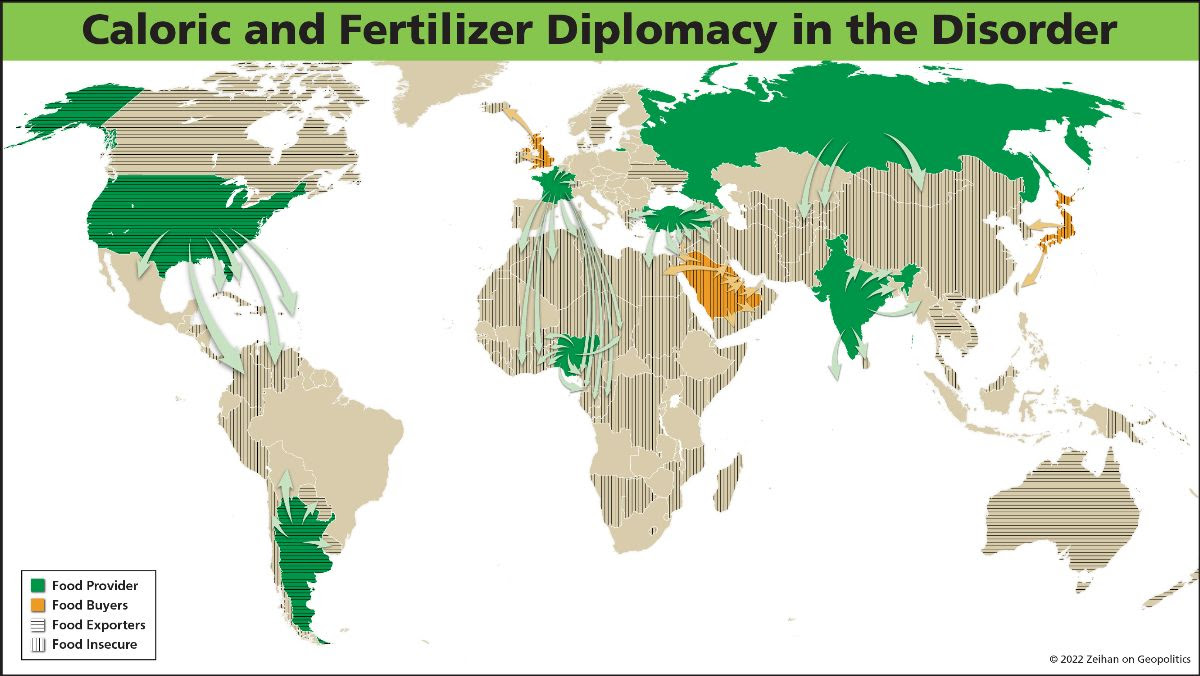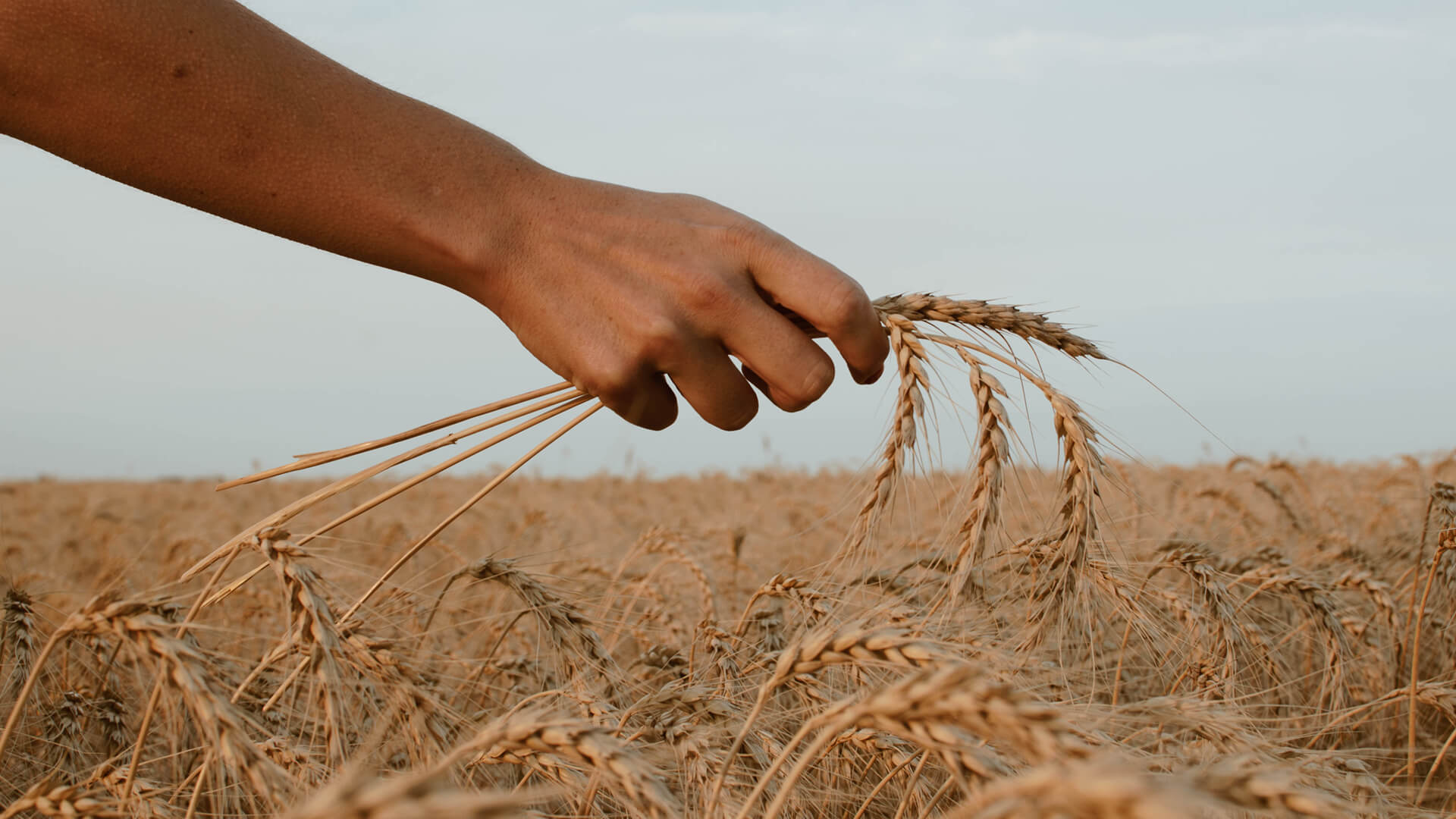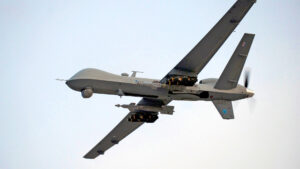My fourth book, The End of the World Is Just the Beginning: Mapping the Collapse of Globalization is scheduled for release on June 14. In coming weeks we will be sharing graphics and excerpts, along with info on how to preorder.
COVID-19 and the logistical issues that arose from lockdowns illustrated the importance of domestic supply chains. From semiconductors to fertilizer, countries that rely most heavily on imports faced the highest price increases. In a globalized system this means every country suffered at least to some extent. Although unhappily, the US should be able to withstand long backorders of new cars, appliances, and the like. What no country can do without is food; and no country can grow sufficient food without fertilizer. This graphic visualizes food stability around the world and is from my upcoming book, The End of the World is Just the Beginning.
From an agricultural point of view, the US is in a comfortable position. Domestic grain and soy production is strong enough that the US is the second largest exporter of wheat and soybeans and the single largest exporter of corn. Where I worry is not the US or Argentina or France, but countries whose agricultural system relies on imports—this includes grain and soy to feed livestock. Many countries in Africa and the Middle East cannot source their grain domestically, but instead rely on imports, largely from Russia. Additionally, American farmers, although unhappily, should be able to adjust to fertilizer price increases, but farmers in poorer, less-industrialized countries will simply have to do with less, and that means smaller yields.
Countries that fall into this category will be eager to join strategic trade partnerships with grain-producing countries. A country like Colombia can feel relatively safe relying on US imports, but elsewhere the logistics are not quite as simple. Egypt, the world’s largest wheat importer, sources 85 percent of its wheat imports from Russia and Ukraine. Sourcing its grain from a more stable region will be a top priority, especially as the Ukraine War drags on.
There is nothing more important than a country’s access to food. For this reason, I consider the agriculture chapter of The End of the World to be of particular importance. The globalized economic system has been largely responsible for lower hunger and poverty rates in developing countries. The question is how many of these gains can be preserved as the system disintegrates?

Here at Zeihan On Geopolitics we select a single charity to sponsor. We have two criteria:
First, we look across the world and use our skill sets to identify where the needs are most acute. Second, we look for an institution with preexisting networks for both materials gathering and aid distribution. That way we know every cent of our donation is not simply going directly to where help is needed most, but our donations serve as a force multiplier for a system already in existence. Then we give what we can.
Today, our chosen charity is a group called Medshare, which provides emergency medical services to communities in need, with a very heavy emphasis on locations facing acute crises. Medshare operates right in the thick of it. Until future notice, every cent we earn from every book we sell in every format through every retailer is going to Medshare’s Ukraine fund.
And then there’s you.
Our newsletters and videologues are not only free, they will always be free. We also will never share your contact information with anyone. All we ask is that if you find one of our releases in any way useful, that you make a donation to Medshare. Over one third of Ukraine’s pre-war population has either been forced from their homes, kidnapped and shipped to Russia, or is trying to survive in occupied lands. This is our way to help who we can. Please, join us.








